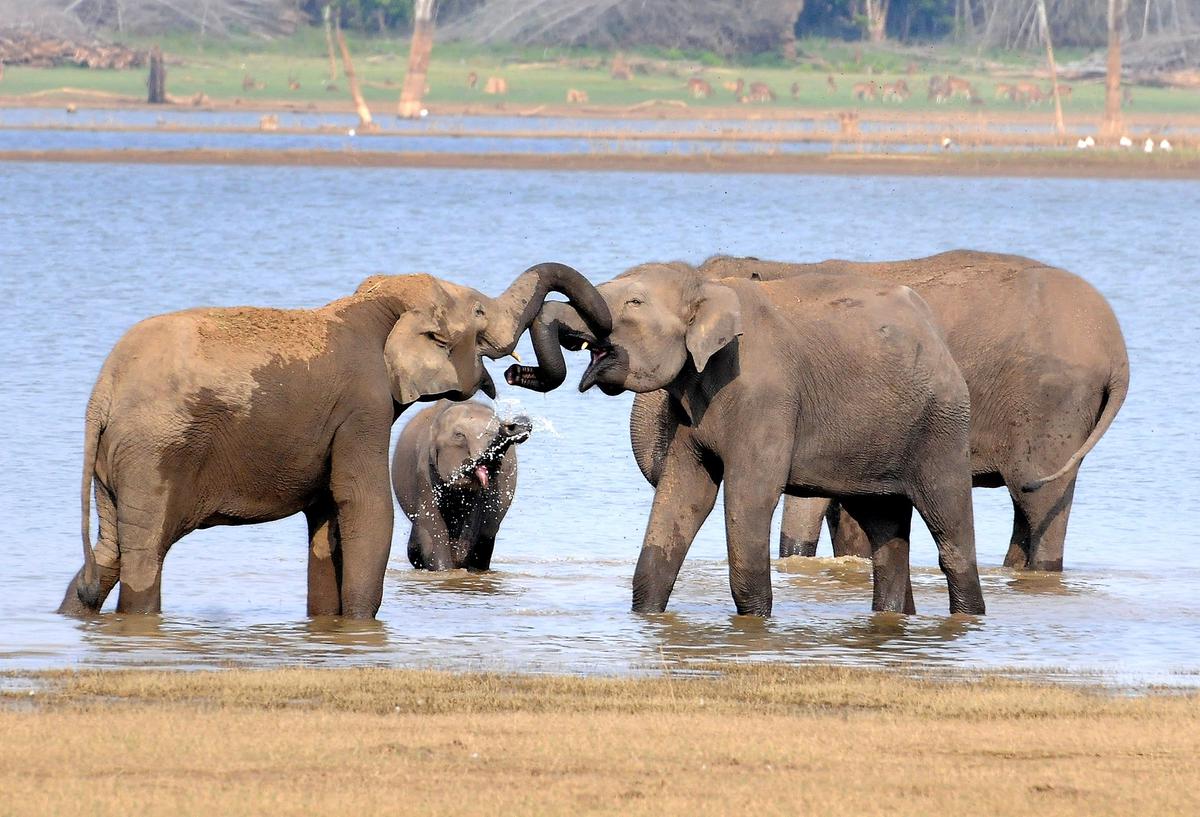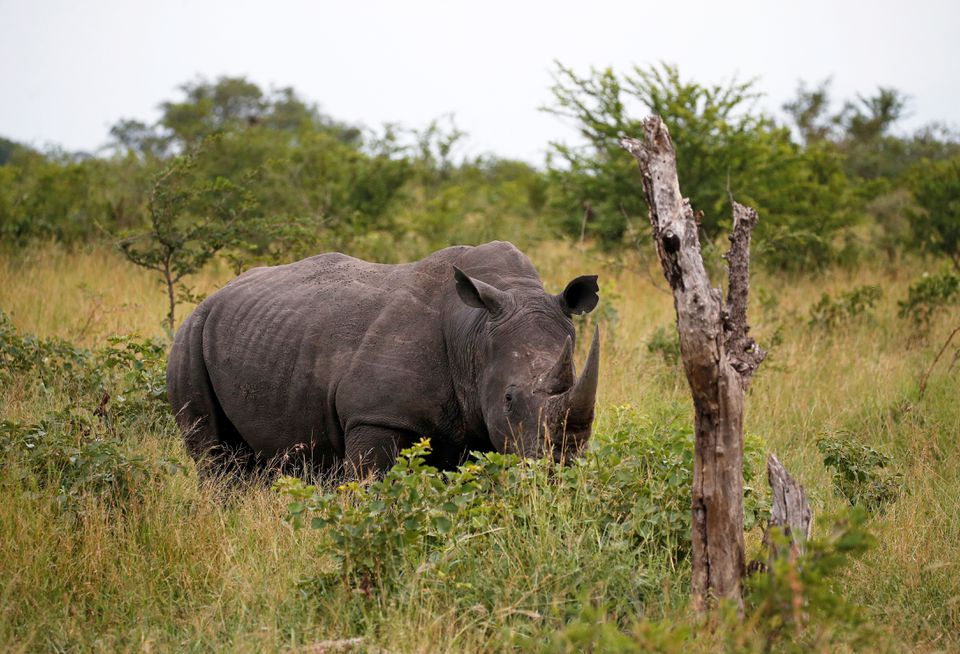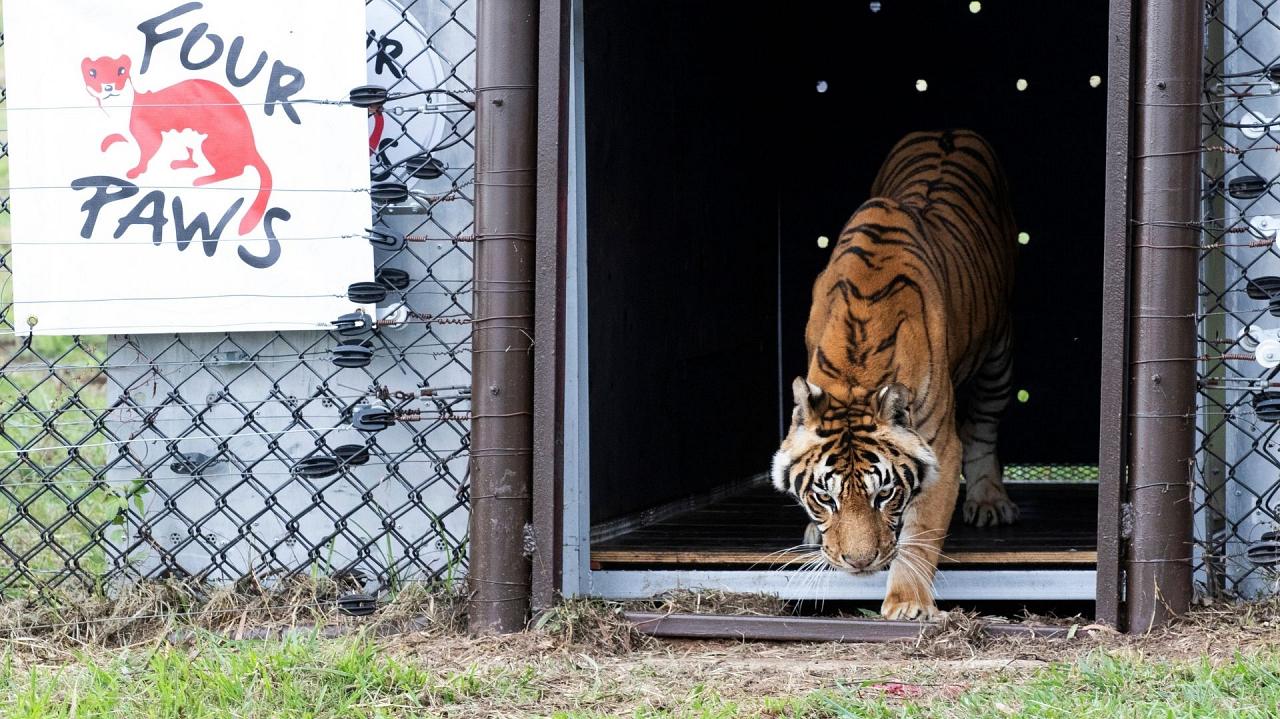- Six Reasons To Bring Millets To The Market!
- Hong Kong Court Makes Landmark Ruling Protecting Transgender Rights
- Substrate Promiscuity Of Fungi Generated Enzyme Laccase Shows Potential In Degrading Industrial Dye Effluents
- Union Minister Of Rural Development Holds A Meeting On ‘Cactus Plantation And Its Economic Usage’
- Ministry Of Tribal Affairs Organised One Day Mega Health Camp ‘Abua Bugin Hodmo-Our Better Health’ At Saraikela Kharsawan, Jharkhand
- Blue Flag Standards For Beaches In The Country
- India-Namibia Sign An MoU On Wildlife Conservation And Sustainable Biodiversity Utilization
- Hydrophobic Ingredients, In Combination With Obsolete Antibiotics, Can Counter Multidrug-Resistant Bacteria
- Promoting Cultivation Of Kala Namak Paddy
Mitigating human-elephant conflict key challenge this World Elephant Day
Posted by: 2022-08-12 17:45:45 ,By Admin

World Elephant Day will be celebrated on Friday bringing into focus the challenging task of ensuring the jumbos’ conservation amidst habitat destruction and disturbance and the resultant increase in human-elephant conflict.
This is particularly true in the South Karnataka region which has the highest concentration of elephants in the State that harboured nearly 6,049 free ranging elephants in the wild as per the 2017 census results.
While an increase in elephant numbers ushers in a ray of hope that their population was not tottering on the brink of extinction it also creates apprehension of the possible increase in conflict situation due to habitat disturbance and destruction by linear projects.
The Forest Department which is grappling with conflict situations in and around Nagarahole, Bandipur, Kodagu and Hassan-Sakleshpur belt have a tough task cut out for them to balance conservation on one hand and mitigating human-elephant conflict on the other.
In Hassan division alone, the department has captured and rehabilitated 74 wild animals in the last 22 years while elephant deaths due to natural and unnatural causes are manifold that number for the 22-year period.
No. of deaths
As per the statistics maintained by the Karnataka Forest Department, as many as 79 elephants have died in Karnataka during 2021, of which 17 were a result of unnatural causes including electrocution and poaching. Across the 14 forest circles spread across 30 districts, there have been 40 human deaths due to human-animal conflict(not all of them caused by elephants) during 2021-22.
For 2022, the elephant death figures are available till May and 11 elephants had succumbed of which 10 were due to natural causes. But during the last one month alone there have been additional four or five elephant deaths in Kodagu belt due to electrocution and when tabulated with figures from other regions, the number of elephant deaths due to unnatural causes, will spike.
Conflict on the decline
Ramesh Kumar, director, Bandipur Tiger Reserve, said conflict around Bandipur was on the decline compared to the situation 20 years ago. Apart from protection and fencing of forests to prevent elephants from straying into the human landscape, farmers are also being prevailed upon to shift to non-edible crops. At present, agricultural fields bordering Bandipur are either sugarcane or banana plantations that naturally attract elephants, said Mr. Kumar.
B.N.N. Murthy, Conservator of Forests, Kodagu Circle, stressed upon the importance of connecting corridors and improving elephant habitats as a long-term measure. At present the government was laying emphasis on installing rail line and steel wire fences in areas identified as hotspots for conflict situation. “We have fenced nearly 100 km of forests bordering human habitation and another 150 km of fencing has to be completed,” he added
A slew of programmes will be held on Friday to mark World Elephant Day at Dubare, Ramapura and other elephant camps but the larger challenge is to ensure conservation of elephants and its habitat and ward off anthropogenic pressure fueled by the imperatives of development.
Read more: Click Here
You may like similar news

India-Namibia sign an MoU on wildlife conservation and sustainable biodiversity utilization
Government of India and Government of the Republic of Namibia have entered into a Memorandum of Unde...

After 40 years of extinction, rhinos return to Mozambique
JOHANNESBURG, July 4 (Reuters) - Over four decades after they became extinct locally, rhinos are roa...

ZSI scientists find a new eel species from Midnapore
Scientists of Estuarine Biology Regional Centre, Zoological Survey of India have discovered a new sp...

International Bat Appreciation Day: Why bats are important for Earth’s ecosystems
Established by Bat Conservation International, International Bat Appreciation Day is celebrated on 1...

Tiger family is starting a new life after 15 years living in a train carriage
By Doloresz Katanich with AP & AFP • Updated: 18/03/2022 Four Bengal tig...









